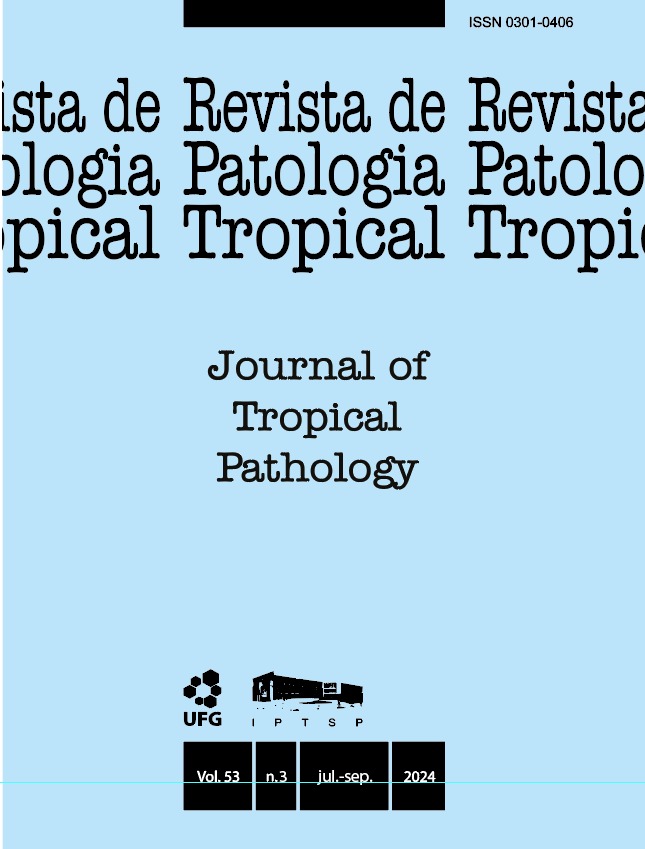Human fascioliasis in brazil: a case report
DOI:
https://doi.org/10.5216/rpt.v53i3.80269Resumo
We report a case of fascioliasis in a 50-year-old man who probably acquired the infection in 2006, when he presented with epigastric pain that forced him to walk bent over. Chronic symptoms, included postprandial dyspepsia, dysphagia, odynophagia, headaches, belching, and epigastric pain, that persisted until 2016. He consulted health clinics in Santa Catarina and Brasília and several diagnostic hypotheses have been proposed, including cholangiocarcinoma and indolent neoplasm. Between 2009 and 2017, he performed images of the upper abdomen such as computed tomography, magnetic resonance imaging and ultrasound examinations. They all revealed dilation, especially of the extrahepatic bile ducts that contained amorphous material. Blood counts showed anemia and significant eosinophilia. Previously low serum iron and ferritin levels normalized after treatment. After the detection of F. hepatica eggs in three stool samples examination, he was diagnosed with fascioliasis. The patient was treated with triclabendazole 15 mg/kg/day in two doses in a single day. Four post-treatment parasitological exams showed negative results, and symptoms resolved within six months after the therapy.
KEY WORDS: Fasciola hepatica; fascioliasis; triclabendazole
Downloads
Downloads
Publicado
Como Citar
Edição
Seção
Licença
The manuscript submission must be accompanied by a letter signed by all authors stating their full name and email address, confirming that the manuscript or part of it has not been published or is under consideration for publication elsewhere, and agreeing to transfer copyright in all media and formats for Journal of Tropical Pathology.

